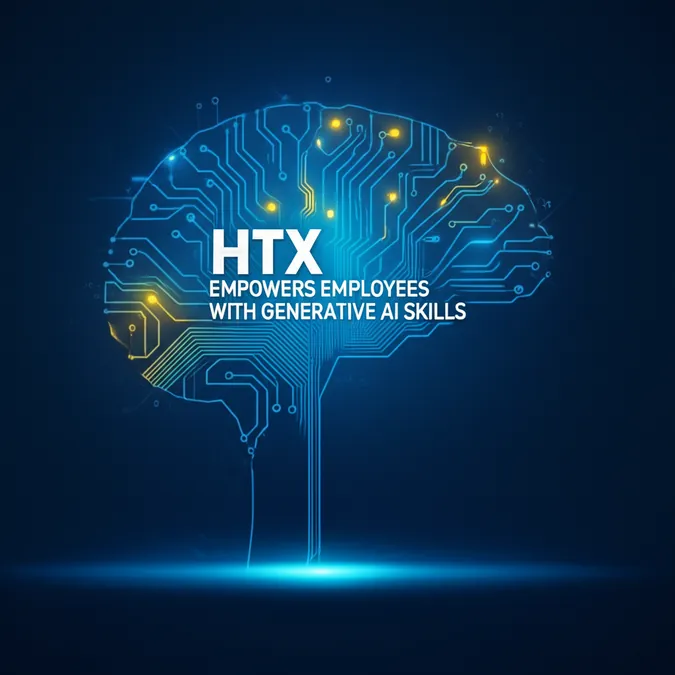OpenAI Reveals The Jobs Most Threatened By AI

The creators of ChatGPT have shed light on the professions most at risk of being automated by artificial intelligence. As AI's capabilities grow, so does public concern about its impact on the job market and its potential for misuse, from providing dangerous instructions to interacting with vulnerable individuals.
While tools like OpenAI's ChatGPT are becoming staples for daily tasks, the rapid pace of AI development is fundamentally reshaping our world, particularly the employment landscape.
 An increasing number of people are relying on AI in their everyday lives (Getty Stock Image)
An increasing number of people are relying on AI in their everyday lives (Getty Stock Image)
The OpenAI Study on AI and Employment
In a paper titled 'Measuring the performance of our models on real-world tasks', OpenAI details a study that identifies 44 jobs facing imminent disruption from AI. The research used an assessment called GDPval to benchmark advanced AI models against human workers in the nine most profitable industries in the United States.
The study found that some of today's most advanced models are already performing at a level comparable to industry experts. This signals a major shift in how work will be performed across various sectors.
Which Industries Are Most Affected?
The retail industry appears to be one of the most vulnerable. The study revealed that Anthropic's Claude Opus 4.1 system outperformed counter and rental clerks in 81% of tasks and beat sales managers in 79% of evaluated duties. Similarly, shipping, receiving, and inventory clerks were outperformed 76% of the time.
On the other hand, some professions showed more resilience. Registered nurses, for example, were only outperformed in 37% of tasks. The information sector, which includes roles like film directors, producers, and journalists, also fared better, with AI winning in just 39% of tasks. Government positions such as compliance officers and social workers saw AI outperform them on 52% of tasks.
The report noted that performance varied depending on the specific AI model used, as each has different strengths and weaknesses.
 OpenAI CEO Sam Altman has admitted that AI could soon replace humans in certain roles (Kyle Grillot/Bloomberg via Getty Images)
OpenAI CEO Sam Altman has admitted that AI could soon replace humans in certain roles (Kyle Grillot/Bloomberg via Getty Images)
The Future of Work According to OpenAI
OpenAI CEO Sam Altman has publicly acknowledged the issue of job displacement. In an interview, he stated, "I'm confident that a lot of current customer support that happens over a phone or computer, those people will lose their jobs, and that'll be better done by an AI."
Despite these concerns, the company's official position in the paper is that AI will more likely "support people in the work they do every day" rather than replace them entirely. However, the data suggests a significant transformation is on the horizon.
The 44 Jobs Most Exposed to AI
Here is the full list of jobs from the study, ranked by the percentage of tasks where AI outperformed humans:
- Counter and rental clerks: 81%
- Sales managers: 79%
- Shipping, receiving, and inventory clerks: 76%
- Editors: 75%
- Software developers: 70%
- Private detectives and investigators: 70%
- Compliance officers: 69%
- First-line supervisors of non-retail sales workers: 69%
- Sales representatives, wholesale and manufacturing, except technical and scientific products: 68%
- General operations managers: 67%
- Medical and health services managers: 65%
- Buyers and purchasing agents: 64%
- Personal financial advisers: 64%
- Administrative services managers: 62%
- Customer service representatives: 59%
- First-line supervisors of retail sales workers: 59%
- First-line supervisors of production and operating workers: 58%
- Nurse practitioners: 56%
- Real estate brokers: 54%
- News analysts, reporters, and journalists: 53%
- Computer and information systems managers: 52%
- First-line supervisors of police and detectives: 49%
- Sales representatives, wholesale and manufacturing, technical and scientific products: 47%
- Lawyers: 46%
- Project management specialists: 42%
- Child, family, and school social workers: 42%
- Medical secretaries and administrative assistants: 42%
- Securities, commodities, and financial services sales agents: 42%
- First-line supervisors of office and administrative support workers: 41%
- Financial investment analysts: 41%
- Recreation workers: 37%
- Registered nurses: 37%
- Property, real estate, and community association managers: 34%
- Financial managers: 32%
- Producers and directors: 31%
- Audio and video technicians: 30%
- Concierges: 29%
- Order clerks: 28%
- Real estate sales agents: 27%
- Pharmacists: 26%
- Accountants and auditors: 24%
- Mechanical engineers: 23%
- Industrial engineers: 17%
- Film and video editors: 17%


